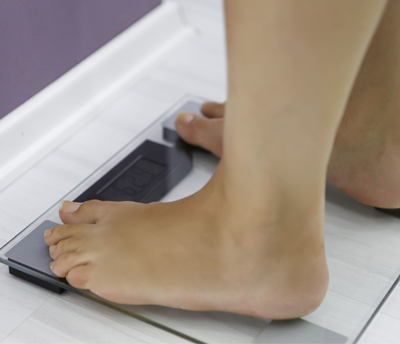9 lifestyle tips for better heart health


“Protect my heart’s health” might not top your daily to-do list, but it should.
The human heart is an amazing organ. Pumping blood throughout the entire body, supplying oxygen and nutrients to the tisssues and removing carbon dioxide and other waste products, it does the most important job we could ask of our bodies.
But a steady heart beat is something that can be easily taken for granted - it's only when something goes wrong that we question how best to take care of our tickers.
Considering that heart disease is the world’s number one killer, and that 26% of deaths a year in the UK are due to heart disease, making small lifestyle tweaks could have a positive impact on health and longevity.
You may not have trouble now, but waiting until you have symptoms to worry about heart disease may be too late, says Erin Michos, MD, MHS, associate director of preventive cardiology at Johns Hopkins School of Medicine.
Making changes to your everyday lifestyle - from diet to exercise - can help prevent or delay the onset of cardiovascular disease (CVD), says Dr. Michos. Even those with a strong family history of heart disease can potentially cut their risk almost in half with a healthy lifestyle, according to a recent New England Journal of Medicine study.
Show your ticker some love with these 9 tweaks towards a healthier lifestyle:
1. Schedule workouts
“Exercise is the single best prescription I can give patients,” says Dr. Michos. “It manages blood pressure, cholesterol, and blood sugar.” Be sure to ink it in: “Once exercise becomes habit, you’ll be more likely to stick with it,” she says. Block out at least 30 minutes for exercise, five times a week.
2. Use an activity tracker
These gadgets can fire up your motivation to move. Sitting for too long can lead to insulin-resistance and inflammation, both risk factors for heart disease, says Dr. Michos, who gives patients her 20-8-2 rule (after every 20 minutes of sitting, stand for 8 minutes and move for 2).
3. Fill half your plate with fruits and vegetables
The antioxidants and fibre in fruit and veggies can help reduce CVD risk, says Dr. Michos. The rest of your heart-healthy plate should include lean protein, such as skinless poultry, fish, beans, and nuts, and wholegrains. Skimp on refined carbs, like white bread as well as cholesterol-raising saturated and trans fats. Nearly half of all CVD deaths are linked to poor dietary choices, according to a JAMA study.

4. Pair up with a fitness buddy
The accountability keeps you active, and the social connectivity tames stress - which is key because excess stress can raise your heart rate and blood pressure, says Dr. Michos.
RELATED: Invite a friend to join WW and receive 1 free month each!
5. Cut down on sugar
Too much added sugar ups the risk of dying from CVD, according to a JAMA study. (It’s also connected to heart-troubling obesity, cholesterol abnormalities, and diabetes). Table sugar, preserves such as jam, and confectionary like sweets and chocolates are the main source of added sugar in the average British diet, according to the NHS. This is followed by non-alcoholic drinks such as cola and squash cordials.
The Scientific Advisory Committee on Nutrition (SACN) advises limiting free sugars to no more than 5% of daily calorie intake, which means adults should have no more than 30g of free sugars a day. This is roughly equivalent to seven sugar cubes.
6. Avoid smoking - and smokers
Smoking can make exercising more physically challenging, increase the risk of blot clots, and lower levels of good cholesterol. Steer clear of secondhand smoke too, which also raises your chance of CVD.
7. Know your numbers
Book a check-up with your GP tp check your blood pressure, cholesterol, blood glucose, weight, and Body Mass Index (BMI), suggests Dr. Michos - and keep a record of these numbers. Tracking these numbers that affect heart health can detect changes before they spiral.
RELATED: Check your BMI

8. Turn off digital devices at least one hour before bed
The blue light glaring from your tablet or smartphone can sabotage your ability to fall asleep by delaying the release of melatonin, a hormone that makes you sleepy at night, explains the National Sleep Foundation. Why it’s bad heart news? A lack of zzz’s is connected to obesity, high blood pressure, and diabetes, according to Circulation.
RELATED: Your screen time diet
9. Rely on homemade foods
Excessive sodium leads to heart-straining high blood pressure. About 77% percent of the sodium we eat comes from packaged, prepared, and restaurant food, according to the AHA. Start by searching recipes for low-sodium soups, salad dressings, and taco seasoning.
10. Start small - and see results
Smaller, realistic goals are more achievable and offer benefits. In a Washington University School of Medicine study, individuals with a BMI of 30 or greater who lost just 5 percent of their body weight decreased risk factors for CVD. Keep up the momentum and your heart will thank you more.
